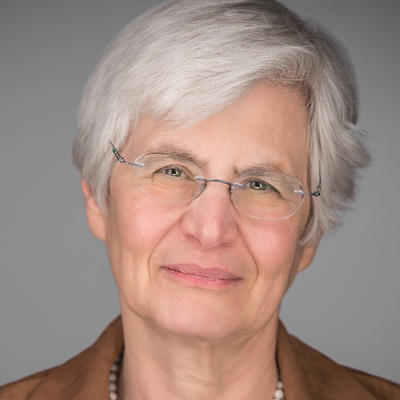Tailoring Health Care For Older Patients
Ways medical care is falling short for retirees and seniors, and what to do about it.


Profit and prosper with the best of Kiplinger's advice on investing, taxes, retirement, personal finance and much more. Delivered daily. Enter your email in the box and click Sign Me Up.
You are now subscribed
Your newsletter sign-up was successful
Want to add more newsletters?

Delivered daily
Kiplinger Today
Profit and prosper with the best of Kiplinger's advice on investing, taxes, retirement, personal finance and much more delivered daily. Smart money moves start here.

Sent five days a week
Kiplinger A Step Ahead
Get practical help to make better financial decisions in your everyday life, from spending to savings on top deals.

Delivered daily
Kiplinger Closing Bell
Get today's biggest financial and investing headlines delivered to your inbox every day the U.S. stock market is open.

Sent twice a week
Kiplinger Adviser Intel
Financial pros across the country share best practices and fresh tactics to preserve and grow your wealth.

Delivered weekly
Kiplinger Tax Tips
Trim your federal and state tax bills with practical tax-planning and tax-cutting strategies.

Sent twice a week
Kiplinger Retirement Tips
Your twice-a-week guide to planning and enjoying a financially secure and richly rewarding retirement

Sent bimonthly.
Kiplinger Adviser Angle
Insights for advisers, wealth managers and other financial professionals.

Sent twice a week
Kiplinger Investing Weekly
Your twice-a-week roundup of promising stocks, funds, companies and industries you should consider, ones you should avoid, and why.

Sent weekly for six weeks
Kiplinger Invest for Retirement
Your step-by-step six-part series on how to invest for retirement, from devising a successful strategy to exactly which investments to choose.
When you visit a doctor’s office, hospital or nursing home, what determines the type of care you receive? That’s the question Dr. Muriel Gillick, professor of population medicine at Harvard Medical School, explores in Old and Sick in America: The Journey Through the Health Care System (University of North Carolina Press, $30).
All too often, Gillick argues, treatment decisions reflect the priorities of doctors, hospitals, pharmaceutical companies and Medicare—not patients’ best interests. In this edited conversation with Kiplinger's Retirement Report Senior Editor Eleanor Laise, Gillick talks about how patients and their families can get better care.
What are the biggest ways that medical care for older patients is falling short? I see the biggest problems for the sickest people—people we call frail, who have multiple chronic illnesses and have difficulty being independent. Our system is not well designed to handle those people.
From just $107.88 $24.99 for Kiplinger Personal Finance
Become a smarter, better informed investor. Subscribe from just $107.88 $24.99, plus get up to 4 Special Issues

Sign up for Kiplinger’s Free Newsletters
Profit and prosper with the best of expert advice on investing, taxes, retirement, personal finance and more - straight to your e-mail.
Profit and prosper with the best of expert advice - straight to your e-mail.

Why is that? Often what people who are frail need is coordination of care—what’s called high touch rather than high tech care. But our system is designed to provide technologically intensive, hospital-based care, and that’s often not what’s in the best interest of this group of people.
How can older patients find higher-quality care? For someone who is frail and has multiple chronic conditions, a good place to start is to have a geriatrically oriented primary-care physician. [He or she] doesn’t have to be a board-certified geriatrician but someone who has expertise and interest in older people with complex diseases. One way you can figure out if they have that interest is if they have a nurse practitioner and social workers working with them to coordinate care and deal with all these aspects of illness. And ask for a geriatric assessment if you feel that the doctor isn’t addressing a lot of the problems you or a family member is experiencing.
What is a comprehensive geriatric assessment, and what should patients expect from it? In addition to thinking about specific diseases in a conventional medical way, it looks at people’s functioning. Can you get out of a chair by yourself, bathe yourself, navigate the hall, take a bus or call for a cab? And what interventions might make it feasible for you to do those things? Would a cane, a walker or a device to make your telephone louder help? Another part of a geriatric assessment is looking at cognitive ability. It’s important to look at mobility, function and cognition, and put them all together.
Let’s talk about the hospital. You write about certain experiences, such as being on a ventilator, that may be burdensome for patients and best avoided if they’re not likely to provide a benefit. What’s your advice to patients on avoiding unwanted treatments or procedures in the hospital? I’m not talking about depriving people of things that are likely to be helpful or that they may genuinely desire, but for a lot of people, particularly with advanced conditions, the degree of benefit for some of these more-invasive procedures is likely to be small and the degree of suffering may be great. Ask, “What good will this do me? Why are you proposing this test? What is the alternative? What are the risks of this procedure?”
At a more general level, advance care planning is a useful approach. Ideally before you get to the hospital, talk about the big picture of your illness and what your overall goals are.
What’s your advice for patients and their families on evaluating skilled-nursing facilities? There are ratings—Nursing Home Compare is one that Medicare provides. Word of mouth is still a very potent source of information. And accessibility for family members is very important. If you’re looking at two places that have comparable care, it’s really important for it to be someplace family and friends can visit.
Profit and prosper with the best of Kiplinger's advice on investing, taxes, retirement, personal finance and much more. Delivered daily. Enter your email in the box and click Sign Me Up.

-
 Ask the Tax Editor: Federal Income Tax Deductions
Ask the Tax Editor: Federal Income Tax DeductionsAsk the Editor In this week's Ask the Editor Q&A, Joy Taylor answers questions on federal income tax deductions
-
 States With No-Fault Car Insurance Laws (and How No-Fault Car Insurance Works)
States With No-Fault Car Insurance Laws (and How No-Fault Car Insurance Works)A breakdown of the confusing rules around no-fault car insurance in every state where it exists.
-
 7 Frugal Habits to Keep Even When You're Rich
7 Frugal Habits to Keep Even When You're RichSome frugal habits are worth it, no matter what tax bracket you're in.
-
 9 Types of Insurance You Probably Don't Need
9 Types of Insurance You Probably Don't NeedFinancial Planning If you're paying for these types of insurance, you may be wasting your money. Here's what you need to know.
-
 Amazon Resale: Where Amazon Prime Returns Become Your Online Bargains
Amazon Resale: Where Amazon Prime Returns Become Your Online BargainsFeature Amazon Resale products may have some imperfections, but that often leads to wildly discounted prices.
-
 457 Plan Contribution Limits for 2026
457 Plan Contribution Limits for 2026Retirement plans There are higher 457 plan contribution limits in 2026. That's good news for state and local government employees.
-
 Medicare Basics: 12 Things You Need to Know
Medicare Basics: 12 Things You Need to KnowMedicare There's Medicare Part A, Part B, Part D, Medigap plans, Medicare Advantage plans and so on. We sort out the confusion about signing up for Medicare — and much more.
-
 The Seven Worst Assets to Leave Your Kids or Grandkids
The Seven Worst Assets to Leave Your Kids or Grandkidsinheritance Leaving these assets to your loved ones may be more trouble than it’s worth. Here's how to avoid adding to their grief after you're gone.
-
 SEP IRA Contribution Limits for 2026
SEP IRA Contribution Limits for 2026SEP IRA A good option for small business owners, SEP IRAs allow individual annual contributions of as much as $70,000 in 2025, and up to $72,000 in 2026.
-
 Roth IRA Contribution Limits for 2026
Roth IRA Contribution Limits for 2026Roth IRAs Roth IRAs allow you to save for retirement with after-tax dollars while you're working, and then withdraw those contributions and earnings tax-free when you retire. Here's a look at 2026 limits and income-based phaseouts.
-
 SIMPLE IRA Contribution Limits for 2026
SIMPLE IRA Contribution Limits for 2026simple IRA For 2026, the SIMPLE IRA contribution limit rises to $17,000, with a $4,000 catch-up for those 50 and over, totaling $21,000.